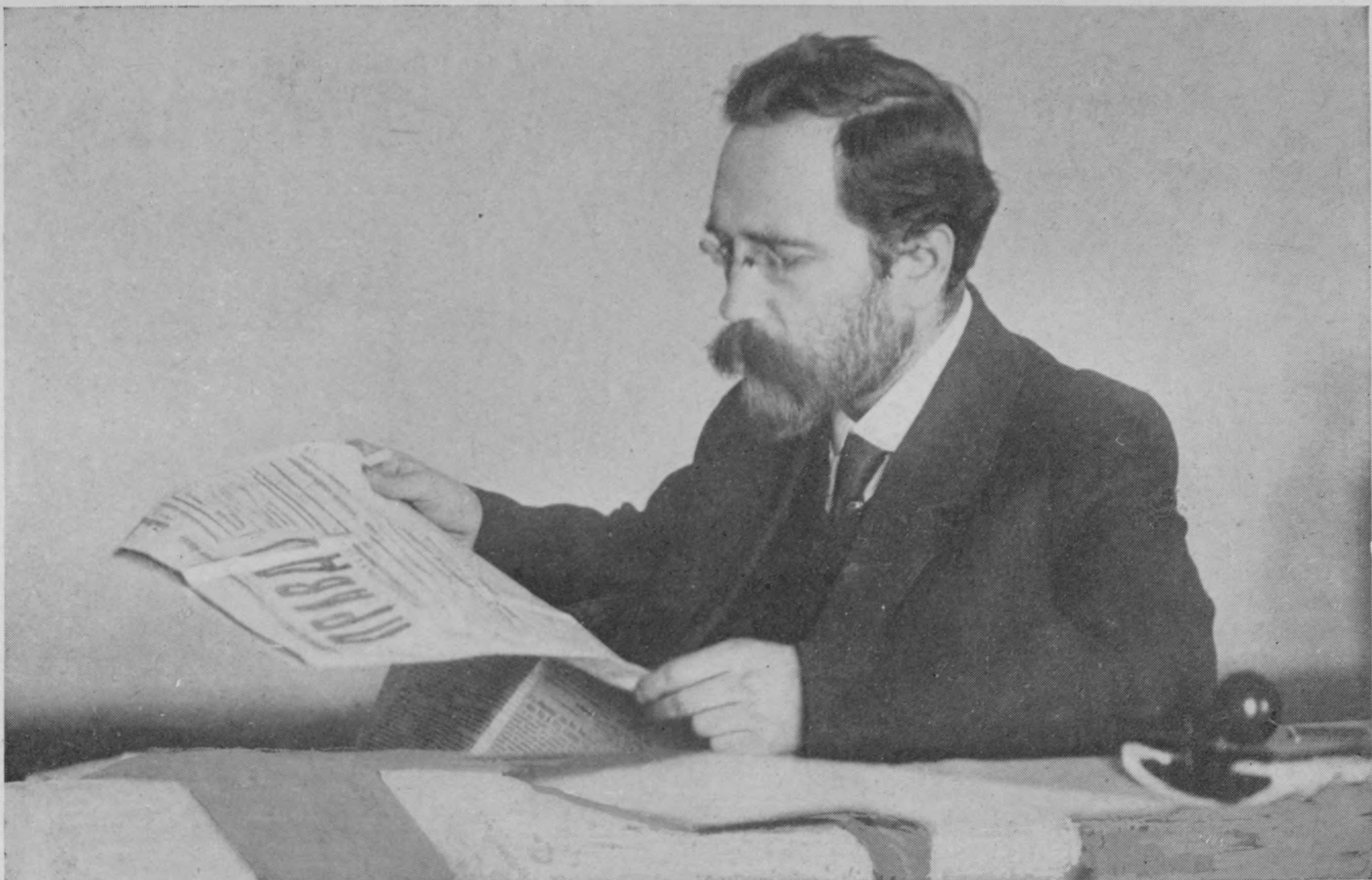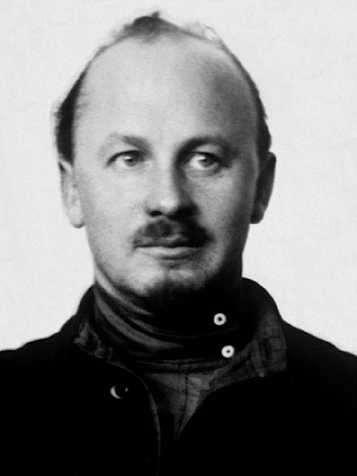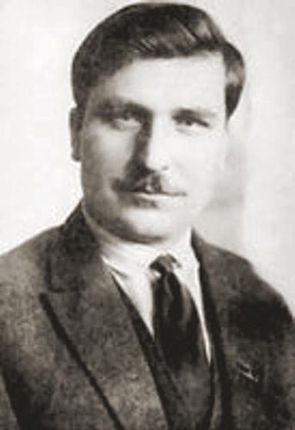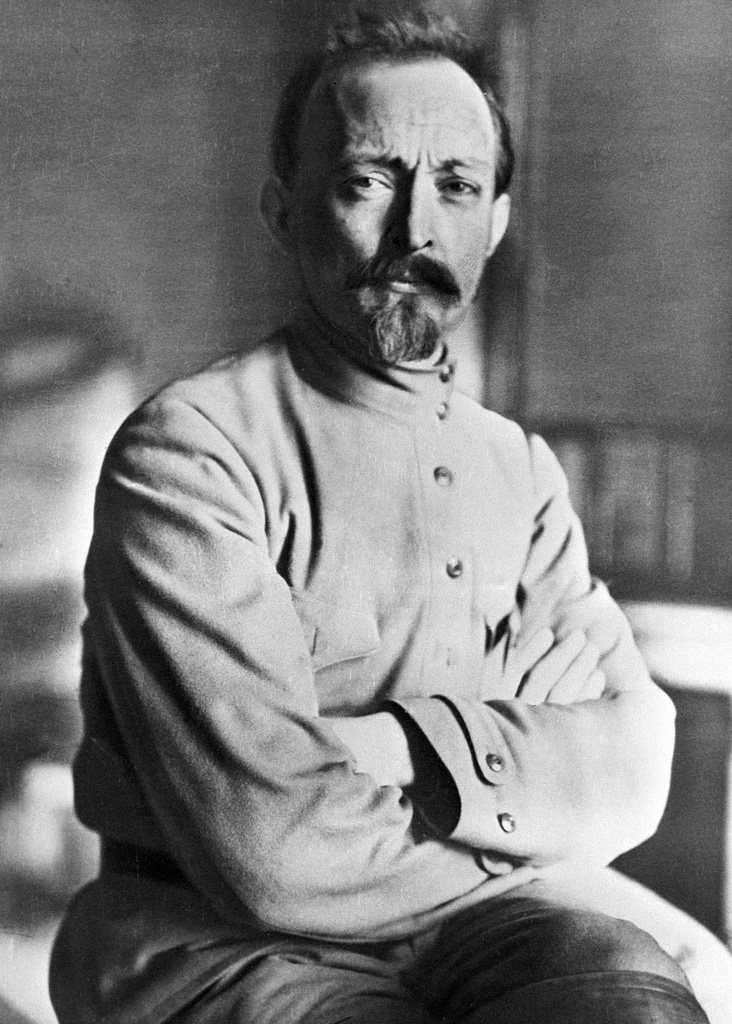|
Lev Kamenev
Lev Borisovich Kamenev. ( Rozenfeld; – 25 August 1936) was a Russian revolutionary and Soviet politician. A prominent Old Bolsheviks, Old Bolshevik, Kamenev was a leading figure in the early Soviet government and served as a Deputy Premier of the Soviet Union, deputy premier of the Soviet Union from 1923 to 1926. Born in Moscow to a family active in revolutionary politics, Kamenev joined the Russian Social Democratic Labour Party in 1901 and sided with Vladimir Lenin's Bolsheviks, Bolshevik faction after the party's 1903 split. He was arrested several times and participated in the failed 1905 Russian Revolution, Revolution of 1905, after which he moved abroad and became one of Lenin's close associates. In 1914, he was arrested upon returning to Saint Petersburg and exiled to Siberia. He returned after the February Revolution of 1917, which overthrew the monarchy, and joined Grigory Zinoviev in opposing Lenin's "April Theses" and the armed seizure of power known as the Octobe ... [...More Info...] [...Related Items...] OR: [Wikipedia] [Google] [Baidu] |
Deputy Premier Of The Soviet Union
This is a list of all deputy premiers of the Soviet Union. List Deputy chairman of the Council of People's Commissars * Lev Kamenev (July 6, 1923 - January 16, 1926) * Alexei Rykov (July 6, 1923 - February 2, 1924) * Alexander Tsiurupa (July 6, 1923 - May 8, 1928) * Vlas Chubar (July 6, 1923 - May 21, 1925, April 24, 1934 - July 4, 1938) * Mamia Orakhelashvili (July 6, 1923 - May 21, 1925) * Valerian Kuybyshev (January 16, 1926 - November 5, 1926, 10 November 1930 - May 14, 1934) * Jānis Rudzutaks (January 16, 1926 - May 25, 1937) * Grigoriy Ordzhonikidze (November 5, 1926 - November 10, 1930) * Vasily Schmidt (August 11, 1928 - December 1, 1930) * Andrey Andreyev (December 22, 1930 - October 9, 1931) * Valery Mezhlauk (April 25, 1934 - February 25, 1937, October 17, 1937 - December 1, 1937) * Nikolay Antipov (April 27, 1935 - June 21, 1937) * Anastas Mikoyan (July 22, 1937 - March 15, 1946) * Stanislav Kosior (January 19, 1938 - May 3, 1938) * Lazar Kaganovich ( ... [...More Info...] [...Related Items...] OR: [Wikipedia] [Google] [Baidu] |
13th Politburo Of The All-Union Communist Party (Bolsheviks)
The Politburo of the 13th Congress of the All-Union Communist Party (Bolsheviks) was in session from 2 June 1924 to 1 January 1926. Composition Members Candidates References Notes {{Communist Party of the Soviet Union Politburo of the 13th Congress of the All-Union Communist Party (Bolsheviks) ... [...More Info...] [...Related Items...] OR: [Wikipedia] [Google] [Baidu] |
Russian Empire
The Russian Empire was an empire that spanned most of northern Eurasia from its establishment in November 1721 until the proclamation of the Russian Republic in September 1917. At its height in the late 19th century, it covered about , roughly one-sixth of the world's landmass, making it the list of largest empires, third-largest empire in history, behind only the British Empire, British and Mongol Empire, Mongol empires. It also Russian colonization of North America, colonized Alaska between 1799 and 1867. The empire's 1897 census, the only one it conducted, found a population of 125.6 million with considerable ethnic, linguistic, religious, and socioeconomic diversity. From the 10th to 17th centuries, the Russians had been ruled by a noble class known as the boyars, above whom was the tsar, an absolute monarch. The groundwork of the Russian Empire was laid by Ivan III (), who greatly expanded his domain, established a centralized Russian national state, and secured inde ... [...More Info...] [...Related Items...] OR: [Wikipedia] [Google] [Baidu] |
Moscow
Moscow is the Capital city, capital and List of cities and towns in Russia by population, largest city of Russia, standing on the Moskva (river), Moskva River in Central Russia. It has a population estimated at over 13 million residents within the city limits, over 19.1 million residents in the urban area, and over 21.5 million residents in Moscow metropolitan area, its metropolitan area. The city covers an area of , while the urban area covers , and the metropolitan area covers over . Moscow is among the world's List of largest cities, largest cities, being the List of European cities by population within city limits, most populous city entirely in Europe, the largest List of urban areas in Europe, urban and List of metropolitan areas in Europe, metropolitan area in Europe, and the largest city by land area on the European continent. First documented in 1147, Moscow became the capital of the Grand Principality of Moscow, which led the unification of the Russian lan ... [...More Info...] [...Related Items...] OR: [Wikipedia] [Google] [Baidu] |
14th Central Committee Of The All-Union Communist Party (Bolsheviks)
The Central Committee (CC) composition was elected by the 14th Congress of the All-Union Communist Party (Bolsheviks), 14th Congress, and sat from 31 December 1925 until 19 December 1927. The CC 1st Plenary Session renewed the composition of the 14th Politburo of the All-Union Communist Party (Bolsheviks), Politburo, 14th Secretariat of the All-Union Communist Party (Bolsheviks), Secretariat and the 14th Orgburo of the All-Union Communist Party (Bolsheviks), Organizational Bureau (OB) of the Communist Party of the Soviet Union, All-Union Communist Party (Bolsheviks). Plenums The CC was not a permanent institution. It convened plenary sessions, one emergency session, four CC plenary sessions and six joint CC–Central Control Commission of the Communist Party of the Soviet Union, Central Control Commission (CCC) plenary sessions were held between the 14th Congress of the All-Union Communist Party (Bolsheviks), 14th Congress and the 15th Congress of the All-Union Communist Party (Bol ... [...More Info...] [...Related Items...] OR: [Wikipedia] [Google] [Baidu] |
13th Central Committee Of The All-Union Communist Party (Bolsheviks)
The Central Committee (CC) composition was elected by the 13th Congress, and sat from 2 June 1924 until 31 December 1925. The CC 1st Plenary Session renewed the composition of the Politburo, Secretariat and the Organizational Bureau (OB) of the All-Union Communist Party (Bolsheviks). Plenums The CC was not a permanent institution. It convened plenary sessions, of which nine CC plenary sessions and one joint CC– Central Control Commission (CCC) plenary sessions were held between the 13th Congress and the 14th Congress. When the CC was not in session, decision-making powers were transferred to inner bodies of the CC itself; the Politburo, Secretariat and Orgburo (none of these bodies were permanent either, but convened several times a months). Apparatus Individuals employed by Central Committee's bureaus, departments and newspapers made up the apparatus between the 13th Congress and the 14th Congress. The bureaus and departments were supervised by the Secretariat, and eac ... [...More Info...] [...Related Items...] OR: [Wikipedia] [Google] [Baidu] |
12th Central Committee Of The Russian Communist Party (Bolsheviks)
The Central Committee (CC) composition was elected by the 12th Congress of the Russian Communist Party (Bolsheviks), 12th Congress, and sat from 25 April 1923 until 31 May 1924. The CC 1st Plenary Session renewed the composition of the 12th Politburo of the Russian Communist Party (Bolsheviks), Politburo, 12th Secretariat of the Russian Communist Party (Bolsheviks), Secretariat and the 12th Orgburo of the Russian Communist Party (Bolsheviks), Organizational Bureau (OB) of the Communist Party of the Soviet Union, Russian Communist Party (Bolsheviks). Plenums The CC was not a permanent institution. It convened plenary sessions, of which ten CC plenary sessions and one joint CC–Central Control Commission of the Communist Party of the Soviet Union, Central Control Commission (CCC) plenary sessions were held between the 12th Congress of the Russian Communist Party (Bolsheviks), 12th Congress and the 13th Congress of the Russian Communist Party (Bolsheviks), 13th Congress. When the CC ... [...More Info...] [...Related Items...] OR: [Wikipedia] [Google] [Baidu] |
11th Central Committee Of The Russian Communist Party (Bolsheviks)
The Central Committee (CC) composition was elected by the 11th Congress of the Russian Communist Party (Bolsheviks), 11th Congress, and sat from 2 April 1922 until 25 April 1923 . The CC 1st Plenary Session renewed the composition of the 11th Politburo of the Russian Communist Party (Bolsheviks), Politburo, 11th Secretariat of the Russian Communist Party (Bolsheviks), Secretariat and the 11th Orgburo of the Russian Communist Party (Bolsheviks), Organizational Bureau (OB) of the Communist Party of the Soviet Union, Russian Communist Party (Bolsheviks). Plenums The CC was not a permanent institution. It convened nine plenary sessions between the 11th Congress of the Russian Communist Party (Bolsheviks), 11th Congress and the 12th Congress of the Russian Communist Party (Bolsheviks), 12th Congress. When the CC was not in session, decision-making powers were transferred to inner bodies of the CC itself; the Politburo of the Communist Party of the Soviet Union, Politburo, Secretariat of ... [...More Info...] [...Related Items...] OR: [Wikipedia] [Google] [Baidu] |
10th Central Committee Of The Russian Communist Party (Bolsheviks)
1 (one, unit, unity) is a number, numeral, and glyph. It is the first and smallest positive integer of the infinite sequence of natural numbers. This fundamental property has led to its unique uses in other fields, ranging from science to sports, where it commonly denotes the first, leading, or top thing in a group. 1 is the unit of counting or measurement, a determiner for singular nouns, and a gender-neutral pronoun. Historically, the representation of 1 evolved from ancient Sumerian and Babylonian symbols to the modern Arabic numeral. In mathematics, 1 is the multiplicative identity, meaning that any number multiplied by 1 equals the same number. 1 is by convention not considered a prime number. In digital technology, 1 represents the "on" state in binary code, the foundation of computing. Philosophically, 1 symbolizes the ultimate reality or source of existence in various traditions. In mathematics The number 1 is the first natural number after 0. Each natural numbe ... [...More Info...] [...Related Items...] OR: [Wikipedia] [Google] [Baidu] |
9th Central Committee Of The Russian Communist Party (Bolsheviks)
The Central Committee (CC) composition was elected by the 9th Congress of the Russian Communist Party (Bolsheviks), 9th Congress, and sat from 5 April 1920 until 16 March 1921. The CC 1st Plenary Session renewed the composition of the 9th Politburo, the 9th Secretariat and the 9th Orgburo of the Russian Communist Party (Bolsheviks), Politburo, 9th Politburo, the 9th Secretariat and the 9th Orgburo of the Russian Communist Party (Bolsheviks), Secretariat and the 9th Orgburo of the Russian Communist Party (Bolsheviks), Organizational Bureau (OB) of the Communist Party of the Soviet Union, Russian Communist Party (Bolsheviks). Plenary sessions Composition Members Candidates References General Plenary sessions, apparatus heads, ethnicity (by clicking on the individual names on "The Central Committee, elected IXth Congress of the RCP (B) 04.05.1920 members" reference), the Central Committee full- and candidate membership, Politburo membership, Secretariat membership and Orgburo ... [...More Info...] [...Related Items...] OR: [Wikipedia] [Google] [Baidu] |
8th Central Committee Of The Russian Communist Party (Bolsheviks)
The Central Committee (CC) composition was elected by the 8th Congress of the Russian Communist Party (Bolsheviks), 8th Congress, and sat from 23 March 1919 until 5 April 1920. The CC 1st Plenary Session renewed the composition of the 8th Politburo and the 8th Secretariat of the Russian Communist Party (Bolsheviks), Politburo, 8th Politburo and the 8th Secretariat of the Russian Communist Party (Bolsheviks), Secretariat and the 8th Orgburo of the Russian Communist Party (Bolsheviks), Organizational Bureau (OB) of the Communist Party of the Soviet Union, Russian Communist Party (Bolsheviks). Plenary sessions Composition Members Candidates References General Plenary sessions, apparatus heads, ethnicity (by clicking on the individual names on "The Central Committee, elected VIIIth Congress of the RCP (B) 23/3/1919 members" reference), the Central Committee full- and candidate membership, Politburo membership, Secretariat membership and Orgburo membership were taken from these ... [...More Info...] [...Related Items...] OR: [Wikipedia] [Google] [Baidu] |
7th Central Committee Of The Russian Communist Party (Bolsheviks)
The Central Committee (CC) composition was elected by the 7th Congress of the Russian Communist Party (Bolsheviks), 7th Congress, and sat from 8 March 1918 until 23 March 1919. The CC 1st Plenary Session renewed the composition of the 7th Bureau of the Russian Communist Party (Bolsheviks), Bureau, 7th Secretariat of the Russian Communist Party (Bolsheviks), Secretariat and the 7th Orgburo of the Russian Communist Party (Bolsheviks), Organizational Bureau (OB) of the Communist Party of the Soviet Union, Russian Communist Party (Bolsheviks). Plenary sessions Composition Members Candidates References General Plenary sessions, apparatus heads, ethnicity (by clicking on the individual names on "The Central Committee elected by the VIIth Congress of the RCP (B) 03.08.1918 members" reference), the Central Committee full- and candidate membership, Bureau membership, Secretariat membership and Orgburo membership were taken from these sources: * * * * * * * Bibliograph ... [...More Info...] [...Related Items...] OR: [Wikipedia] [Google] [Baidu] |









